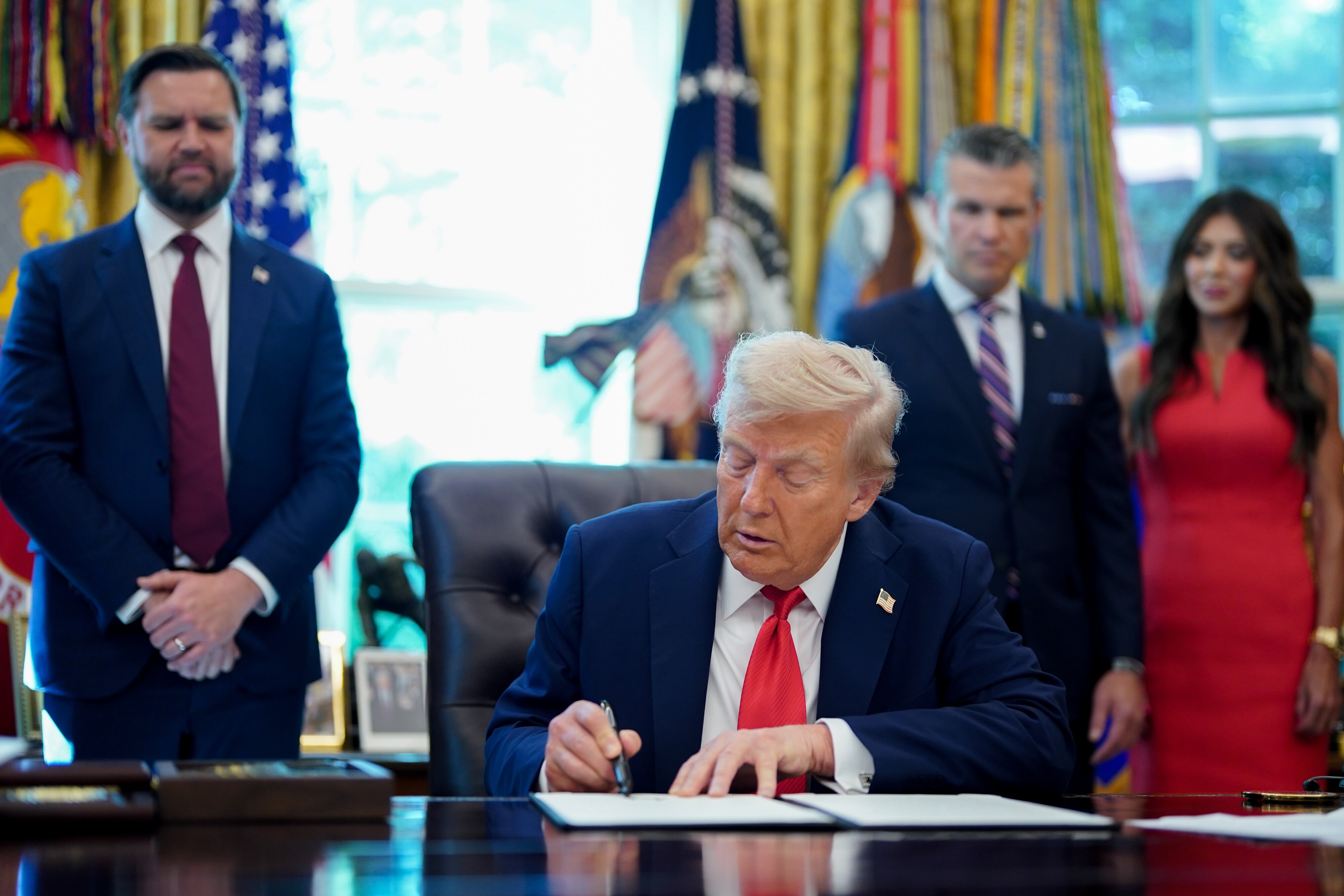
President Donald Trump signed a pair of executive orders Monday aiming to end cashless bail in Washington and pressure other cities to also eliminate the practice, the latest effort by the White House to overhaul the nation's criminal justice system.
The order related to the nation's capital will task law enforcement agencies with ensuring that people arrested in the District of Columbia are held in federal custody to the fullest extent permissible under applicable law, according to the White House.
The second order seeks to end cashless bail around the country by directing the Justice Department to compile a list of jurisdictions that maintain the policy, with those places facing the prospect of federal funding being stripped.

Some cities including Washington have reduced their use of cash bail over concerns that accused criminals were being held in jail simply because they could not afford bail, rather than because they posed a risk to public safety.
While critics of cash bail say it disproportionately hurts low-income people and results in those who are arrested being unable to return to their jobs or family duties, proponents say the system keeps criminals off the street.
“They thought it was discriminatory to make people put up money because they just killed three people lying on a street, any street all over the country, cashless bail — we're ending it,” Trump said. “But we're starting by ending it in DC, and that we have the right to do through federalization.”
Trump has sought to crack down on what he has portrayed as out of control crime, with Washington at the epicenter of his efforts. The president has seized control of the city's police force and deployed about 2,000 National Guard troops to patrol the nation's capital, despite data showing violent crime there hit a 30-year low last year.
But Trump has targeted other Democratic-led jurisdictions, threatening federal intervention in cities like Chicago and San Francisco and criticizing political leaders from the opposition party. Trump reiterated that criticism Monday, singling out Illinois Governor JB Pritzker and California Governor Gavin Newsom.
“I think the Democrats better get smart. And, you know, politically, I hope they don't, but actually, in terms of love for the country, I hope they do, because it will be good to work together,” Trump said.
Earlier this month, Trump called on Congress to end Washington's cashless bail system. Washington mainly eliminated cash bail in the 1990s, making it one of the first US cities to move away from the practice on civil rights concerns.
Trump on Monday also signed an executive order that tasks the Justice Department with reviewing cases involving flag burning to see if charges could be brought that weren't specific to the flag burning itself, such as public nuisance or disorderly conduct laws.
Trump has long sought to impose penalties for flag burning, floating punishments including a prison sentence or a loss of citizenship after winning his first presidential election.
The US Constitution broadly protects speech and peaceful protest, and courts have long held that political speech is among the most sacrosanct forms of speech. The US Supreme Court in 1989 ruled in a 5-4 decision that burning a flag itself is a form of political expression protected under the First Amendment and cannot be made illegal.
Essential Business Intelligence, Continuous LIVE TV, Sharp Market Insights, Practical Personal Finance Advice and Latest Stories — On NDTV Profit.






















